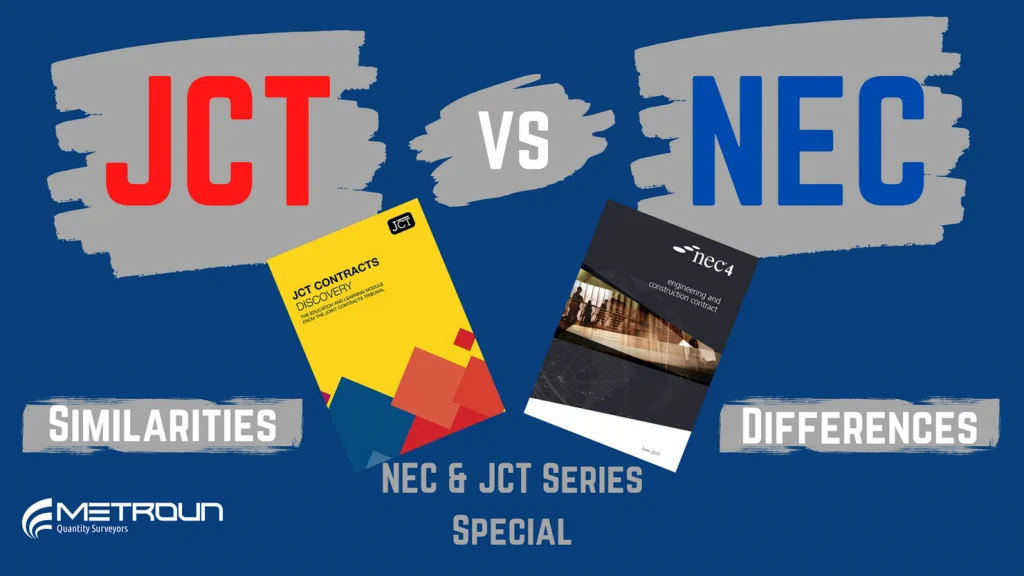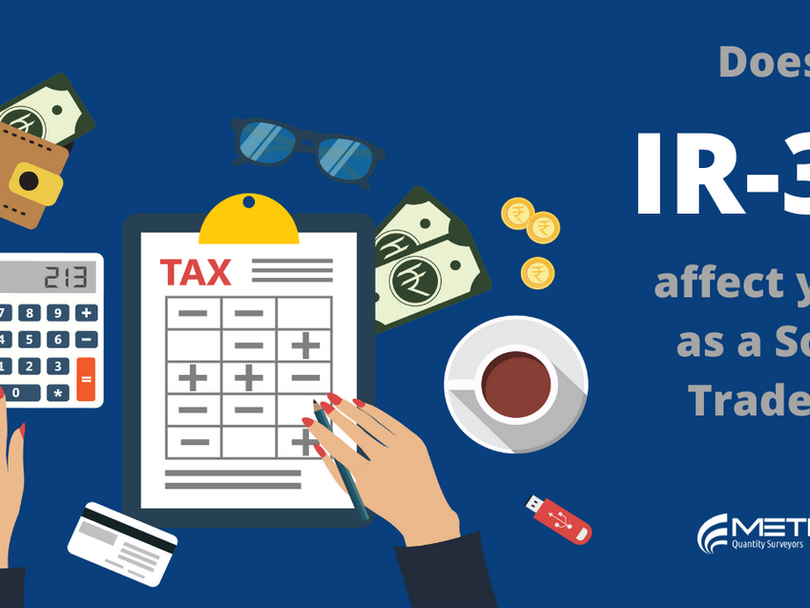A day in the life of a main contractor Quantity Surveyor (QS)

Whether you are embarking on a career change, studying at university, or just generally thinking about becoming a QS, you
Relevant Event or Relevant Matter? | JCT Contracts

The construction industry is full of jargon and it can be difficult to understand all the acronyms and terms used.
Construction Manager vs Quantity Surveyors | Which Career Should You Choose?

If you’ve completed or are currently studying either construction management or quantity surveying, you may have noticed that a lot
What Is A Construction Takeoff? Plus Free Dimension Paper Download!

One of the first skills you’re introduced to when studying quantity surveying, is how to perform a construction take off.
NEC vs JCT Contracts: Similarities and Differences

Anyone working or studying a construction profession in the UK has likely heard of JCT and NEC. However, it is
How to become a full member of RICS (MRICS)

Previously we have taken a look at how to become an Associate member of RICS. However, if you are slightly
Is It Too Late To Become A Quantity Surveyor?

Is it too late to become a quantity surveyor? In this blog we will explore why people are considering a
What Is A Quantity Surveyor & How Can You Become One Too

In this article will be explaining what a quantity surveyor is, the roles and responsibilities and how you can become
How to become an Associate Member of RICS (AssocRICS)

Professions commonly can take years of education and work experience to become fully qualified and Quantity Surveying is no different. It is generally considered that obtaining a chartership from the Royal Institution of Chartered Surveyors, known as RICS, is the pinnacle of the quantity surveying profession and opens doors to the highest wages and most sort after jobs. Through completing the Assessment of Professional Competence or APC, you can become what RICS term an ‘associate’ (AssocRICS), which is the entry-level membership. By satisfyingfurther obligations you can become a fully chartered member. In this blog we will focus on theassociate route with a follow up blog and video being produced in the coming weeks which will tackle the fully fledged chartered membership. So first things first, you need to enrol with RICS to start the APC. You can enrol
Sole Traders and IR35 – Some Clarity

Previously we have produced videos and created blogs that tackle the way the new IR35 legislation could affect you as an individual working through a “Personal Service Company” (or sometimes termed contractor / free lancer etc.) and also how it may affect an employer who uses contractors of this nature. These videos can be found on our website and our YouTube channel if you wish to take a look! However, we have had discussions and comments from sole traders who still feel in the dark about whether they will be affected by the updated IR35 legislation. Therefore, we wanted to do something about that and so this Blog and it’s partnering video seeks to tackle these concerns and will hopefully provide some much-needed clarity for sole traders. Generally, the definition of a sole trader would be classed as someone who both owns and runs their business and has no legal, separate identity from the person themselves. It is commonly said that as a sole trader, you are the business, and the business would simply not exist without you. So, as a sole trader you wish to understand if the new IR35 legislation will relate to you in the same way that it does to incorporated “Personal Service Companies”, sometimes termed contractors. Simply put, the answer would be ‘no’. As a sole trader you are not affected by IR35 legislation because it only applies to incorporated companies where an intermediary between the client and the individual exists. And of course, because a sole trader does not have this separate legal entity, the incorporated company, between them and the client, the rules cannot apply. This is also why Sole Trading can be seen as a “riskier” style of business as the individuals personal assets become liable to any debts. The benefit of having a limited (or incorporated) company is literally in the name… It provides limited liability for any business transactions and keeps the individuals assets safe. However, there is a big ‘but’… The rules around principles of employment status – which


